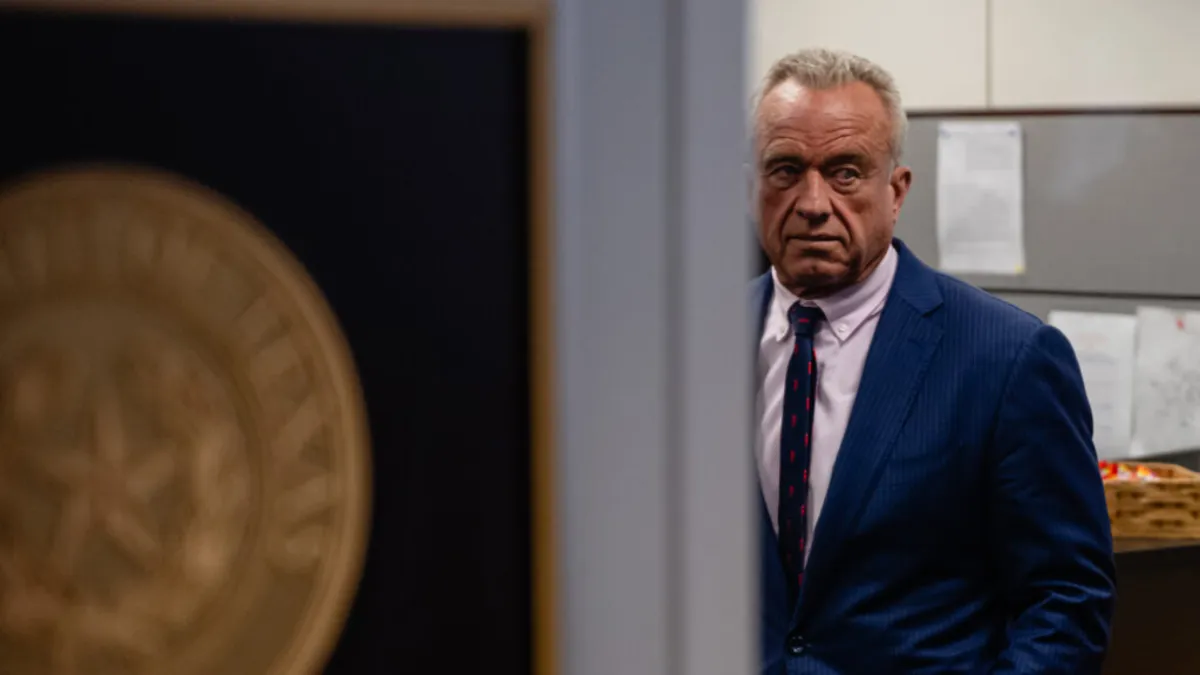
The recent commentary by Robert Kennedy Jr. regarding measles has caused a stir among vaccine proponents, especially given the ongoing measles outbreak in Texas. Advocates for vaccination were hopeful that Kennedy's statements would encourage parents to immunize their children, particularly in light of the new leadership at the Health and Human Services (HHS). However, as they delved into the article, they discovered a message that diverged from the traditional public health narrative.
In the face of a growing measles outbreak that has resulted in nearly 150 cases and at least 18 hospitalizations, public health officials were anticipating a clear call to action. Instead, Kennedy's commentary emphasized parental choice and suggested that parents consult health care providers about vaccination options. This approach has raised concerns among health experts who expect unequivocal support for vaccination during outbreaks.
Jason Schwartz, an associate professor of health policy at the Yale School of Public Health, expressed his disappointment, stating, “You would expect the conversation to be saying: This is why vaccination is absolutely imperative.” He noted that the commentary's suggestion to “ask your doctor, understand your options” marks a significant shift from traditional messaging during measles outbreaks.
Kennedy’s article began with what seemed like a standard public health message, expressing condolences for the child who tragically lost their life due to the outbreak and acknowledging the importance of vaccination in protecting vulnerable populations. Paul Offit, an infectious diseases expert at the Children's Hospital of Philadelphia, noted, “It started strong, then it sort of fell apart.” Many experts interviewed found the piece disjointed, suggesting it resembled a “Frankenstein” creation, likely due to contributions from multiple authors.
William Moss, a professor of epidemiology at the Johns Hopkins University Bloomberg School of Public Health, pointed out the subtlety of the skepticism towards vaccination present in Kennedy's comments. “It wasn’t blatant vaccine skepticism expressed in this piece. It was more subtle,” he remarked, highlighting the mixed messages conveyed throughout the commentary.
While some experts appreciated Kennedy's acknowledgment of the grieving parents, many were critical of the emphasis placed on nutrition as a solution to the measles outbreak. The commentary discussed the importance of a healthy diet and specific vitamins, asserting that nutrition is a “best defense” against various diseases. However, experts like Malia Jones, an assistant professor at University of Wisconsin-Madison, argued that the focus on diet detracted from the urgent need for vaccination, stating, “We can have good nutrition … and also vaccines.”
Kennedy's focus on vitamin A, although beneficial in cases of malnutrition, does not address the need for direct prevention of measles infections. Offit and others have emphasized that while a healthy immune system is advantageous, it is not a substitute for vaccination. “You can have the best immune response in the world, but you’re not going to have specific immunity unless you’ve either been naturally infected or vaccinated,” he explained.
As public health officials navigate the complexities of vaccine advocacy, the need for clear and decisive messaging becomes increasingly critical. The mixed signals from Kennedy's commentary highlight the challenges faced in promoting vaccination during outbreaks, especially from influential figures who have previously expressed skepticism about vaccine safety.
In conclusion, the ongoing measles outbreak serves as a poignant reminder of the importance of vaccination in protecting public health. As experts continue to advocate for immunization, the call for a unified message supporting vaccines remains more important than ever.